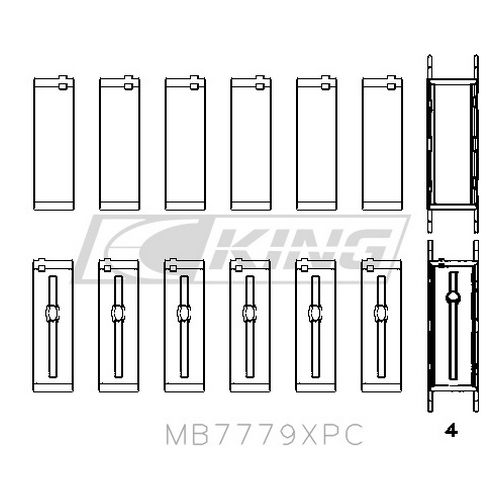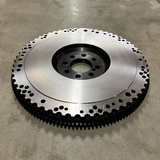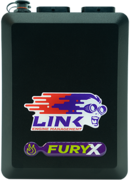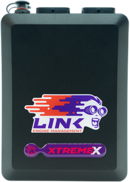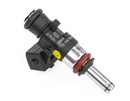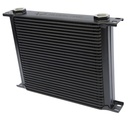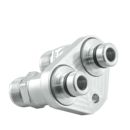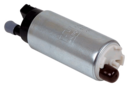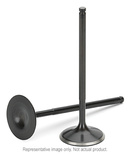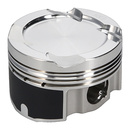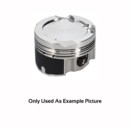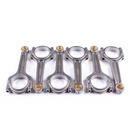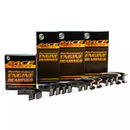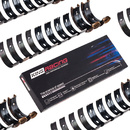Guide to Tuning the BMW B58 / Toyota B58 Engine
B58 Engine. Brief Introduction
Information
B58 Turbocharged 3.0-liter inline six with 326-340hp and 450Nm, 11.0:1 compression ratio. Direct injection with a water/air intercooler integrated into the intake plenum.
The engine block features a "Closed-deck" design for better durability, made of aluminum.
The B58TU (Technical Update) version was introduced in 2019 and includes a series of improvements described in each section below.
Which Cars Use the B58 Engine?
Engine Code / Power / Body
- B58B30M0
Power: 326 hp (240 kW) at 5500–6500 rpm
Torque: 450 Nm at 1380–5000 rpm
Used in:
BMW 340i (F30)
BMW 440i (F32)
BMW 740i (G11)
BMW X3 M40i (G01)
Toyota Supra (A90, early models) - B58B30O1
Power: 340 hp (250 kW) at 5000–6500 rpm
Torque: 500 Nm at 1600–4500 rpm
Used in:
BMW M340i (G20)
BMW Z4 M40i (G29)
Toyota Supra (A90, later models) - B58B30M1
Power: 374 hp (275 kW) at 5500–6500 rpm
Torque: 500 Nm at 1850–5000 rpm
Used in:
BMW M440i (G22)
BMW M340i (G20, later models) - B58B30C
Power: 326 hp (240 kW) at 5000–6000 rpm
Torque: 450 Nm at 1600–4500 rpm
Used in:
BMW 540i (G30, with mild hybrid technology)
BMW X5 xDrive40i (G05, with mild hybrid technology)
BMW X7 xDrive40i (G07, with mild hybrid technology) - B58B30D
Power: 387 hp (285 kW) at 5800–6500 rpm
Torque: 500 Nm at 1800–5000 rpm
Used in:
BMW X3 M40i (G01, later models)
BMW X4 M40i (G02) - B58TU1
Power: Varies by model, up to 374 hp (275 kW)
Torque: Up to 500 Nm
Used in:
Later models of BMW M340i, Z4 M40i
Toyota Supra
Other BMW models with 40i designation.
ECU Software – Engine Management
Any changes that affect the air-fuel mixture must be adjusted in the engine management software, regardless of whether the change is small or large.
Example 1:
If you switch to injectors with a different flow rate, a hardware change that significantly affects the engine, the car may become difficult to drive.
Example 2:
If you change the intercooler, the car may function just like before with no noticeable difference.
In both cases, the software needs to be adjusted to optimize the engine's performance.
Analogy:
The engine management (ECU) can adapt to different situations to protect the engine. Imagine there are 10 steps of safety margin both to the right and left.
If the hardware changes and the software needs to adjust 3 steps in one direction, as the new standard, only 7 steps remain in the margin.
To restore balance to 0, the software needs to be adjusted.
Different Tuning Stages
Companies choose to divide modifications into tuning stages. Stage 1, 2, 3, etc. Here, we break them down into categories and the difficulty level of installation, and it may not match exactly how others categorize them. It is highly personal.
- B58 Stage 1 - up to 400hp
- B58 Stage 2 - up to 500hp
- B58 Stage 3 - up to 600hp
- B58 Stage 4 - over 600hp
1.
B58 Stage 1 - up to 400hp
Easier modifications
Difficulty level 1/5
Air Filter
B58 Gen1 and Gen2 have different intake systems / inlets.
Downpipe
The cylinder head and manifold differ between B58 Gen1 and Gen2, but the same downpipe can be used for both.
Exhaust System
The exhaust system has the greatest impact on the engine's flow and horsepower. However, the installation varies depending on which car the exhaust system is to be mounted on, as the B58 engine is installed in several different cars. Here is a list of the different car models that have the B58 engine:
BMW
3 Series:
BMW 340i (F30/F31) – 2015–2019
BMW M340i (G20/G21) – 2019 and onwards
4 Series:
BMW 440i (F32/F33/F36) – 2016–2020
BMW M440i (G22/G23/G26) – 2020 and onwards
5 Series:
BMW 540i (G30/G31) – 2016 and onwards
6 Series:
BMW 640i (G32) – 2017 and onwards (Gran Turismo)
7 Series:
BMW 740i (G11/G12) – 2015 and onwards
8 Series:
BMW 840i (G14/G15/G16) – 2019 and onwards
Z Series:
BMW Z4 M40i (G29) – 2019 and onwards
X Series (SUV):
BMW X3 M40i (G01) – 2017 and onwards
BMW X4 M40i (G02) – 2018 and onwards
BMW X5 xDrive40i (G05) – 2018 and onwards
BMW X6 xDrive40i (G06) – 2019 and onwards
BMW X7 xDrive40i (G07) – 2018 and onwards
Alpina
Alpina B3 (G20) – 2020 and onwards
Alpina B4 (G22/G26) – 2022 and onwards
Toyota
Toyota GR Supra (A90) – 2019 and onwards
Engine Oil / Oil Filter
When an engine is tuned, it often runs hotter. If more aggressive timing doesn't make the engine run hotter, the driving style will cause everything to get hotter. Nothing strange about that. Therefore, change the oil and oil filter more frequently!
- Oil is cheaper than engine failure.
Inga produkter hittades
2.
B58 Stage 2 - up to 500hp
Parts that contribute to the engine's durability, such as cooling and lubrication. This stage is about increasing the safety margins.
Difficulty level 2/5
Intercooler (Intake)
Originally, there is a water/air intercooler integrated into the intake. This works with higher engine power, but at extreme tuning levels, it can also be replaced with an air/air intercooler mounted in front of the radiator.
Fuel Injectors
The B58 has direct injection.
The B58TU from 2022 also received port injection. These models have both direct injection and port injection. The injectors for direct injection have the same fit, but the spray pattern has been changed.
Aftermarket intakes usually have port injection (port injection) = injectors in the intake, which minimizes the risk of carbon buildup on the intake valves because the fuel helps clean the valves.
Note
If direct injection is to be deactivated, the fuel injectors must be removed and the holes plugged.
Why?
When active, they are cooled by fuel. When inactive, the combustion chamber temperature would overheat the injector, causing it to melt and enter the combustion chamber, resulting in engine failure.
Port Injectors Installed in the Intake Runners:
Water Cooler
The B58TU (Gen2) has dual water pumps. One cools the engine block, and one cools the cylinder head. The serpentine belt system has also been modified to drive an additional pump.
Oil Cooler
The B58 does not have an external air-oil cooler but uses a water-oil heat exchanger as standard.
- Always ensure sufficient oil cooling!
- If the oil temperature in the sump reaches 120 degrees, it may be over 150 degrees at the engine bearings. Good bearings can withstand this, but not the oil.
If the oil gets too hot:
- It becomes too thin and loses its ability to lubricate.
- The engine bearings get damaged, increasing the clearance (gap) and causing wear on other parts as bearing debris spreads throughout the engine.
- Oil pressure drops.
- The crankshaft and bearings begin to rub directly against each other (metal against metal).
- Heat and noise arise (although the noise is often not heard in time).
- Eventually, the bearings and crankshaft can weld together due to the heat.
Transmission Cooler:
Crankcase Ventilation
The B58 PCV (Positive Crankcase Ventilation) is a common issue. The membrane fails, and the ventilation no longer works as it should.
When tuning, the pressure in the engine's combustion chamber increases, which also raises the pressure/pulses in the crankcase. Therefore, the existing crankcase ventilation is upgraded to one with more flow or to two units.
Fuel Pump
Low-pressure pump
High-pressure fuel pump (HPFP)
The fuel pump has been replaced with one that has a higher flow rate.
HDP5 EVO is installed in B58
HDP6 EVO is installed in B58 TU
If you have a Gen1 B58, you can use a Gen 2 B58TU, which has a higher flow and allows up to 500hp.
3.
B58 Stage 3 - up to 600hp
Larger modifications that often require additional accessories and consumables beyond what is provided with the available products.
Difficulty level 3/5
Turbocharger
The original turbocharger has a turbine housing that is connected to the manifold, which is divided into 3 parts. There are different options for upgrading here.
- Install a supercore in the existing turbine housing with the same turbine wheel size as the original. No modifications are required for the hot side (exhaust side). The only possible changes may be to air, water, and oil lines that might need to be replaced or adjusted.
- Machine the original turbine housing so that a supercore with a larger turbine can fit, allowing for more power.
- Replace the manifold so a larger aftermarket turbo can be installed. This is the most common modification and also provides the most flexibility in turbo choice, installation, and maximum engine power.
Transmission Optimization
Similar to the optimization of the engine control unit for smooth and consistent power, the transmission control unit is also optimized to match the engine and driving style. This is a common upgrade that provides great drivability and control.
4.
B58 Stage 4 - Over 600hp
Larger modifications that require the engine to be opened. Here, all internal parts are replaced with upgraded components when the engine is disassembled.
Difficulty level 5/5
Camshafts / Valves
In addition to the aluminum engine block, the cylinder head is also made of aluminum with 24 valves (4 valves per cylinder). BMW Valvetronic and dual VANOS.
Pistons
The original bore size is 82 mm (3.23 inches) with a stroke length of 94.6 mm (3.72 inches). The compression ratio is 11.0:1.
Connecting Rods
Note that connecting rods that replace the original ones come in different lengths.
- 148.00mm
- 148.17mm
- 148.18mm
Cylinder Head Gasket
The original B58 bore size is 82mm.
Note that cylinder head gaskets differ between the B58 and B58TU.
The B58 has a two-piece timing chain, while the B58TU has a single timing chain and modified VANOS.
This is clearly visible in the gasket's cutout for the timing chain, where Generation 1 with the two-piece timing chain is significantly offset sideways.
Engine Bolts
Cylinder head bolts, block mounting bolts, main bearing bolts
Engine Mounts
The B58TU Gen2 crankshaft is lighter as the materials and machining have been changed. The same block and main bearings with axial bearings still fit.
Engine mounts for the B58 are available from both KING and ACL. ACL only offers main bearings, while KING offers both block and main bearings.
KING bearings image of main bearings where a pair has axial bearings built-in and are located in position 4. The length of this is:
24.9 mm
0.980 inches
The length of the other positions 1-3, 5-7 is:
18.6 mm
0.732 inches
The seat of the main bearings (the housing) should be:
60.01 / 0.00 mm
2.3627 / 0.0000 inches
- Always measure bearing clearance before final assembly
- Use assembly grease that protects during the startup phase
